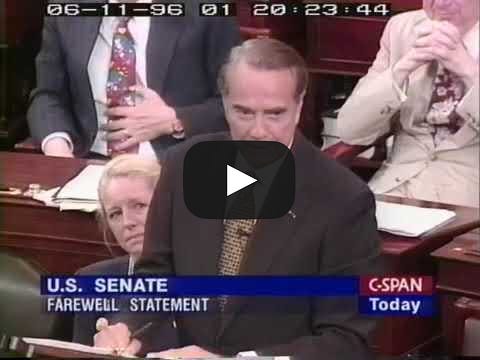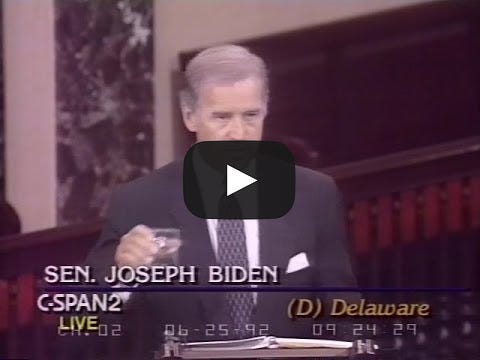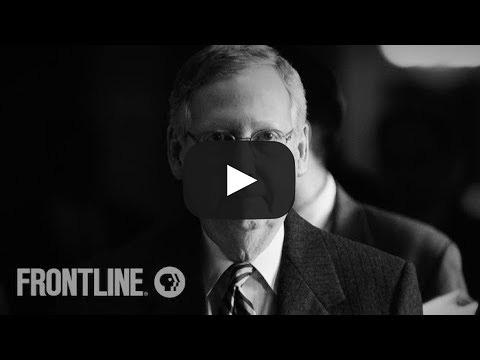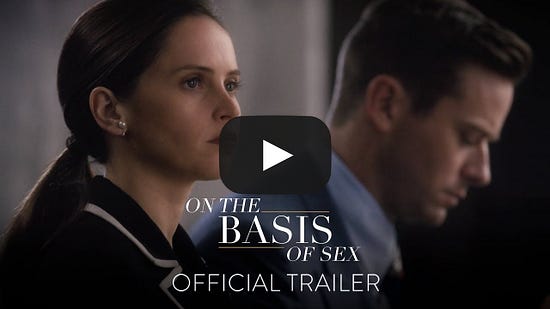Thanks, Leader Mitch McConnell
I know something about Senate GOP leaders, having worked for a couple. Sen. Mitch McConnell is the finest GOP leader in my lifetime. He deserves praise and thanks.
The last time I heard a Senate Republican Leader announce his departure from the Senate, I was sitting in my Secretary of the Senate’s chair, to the left of the Senate President pro tempore, Strom Thurmond (R-SC), on June 11, 1996. The Senate was packed that afternoon, a rare moment when every Senator, Democratic and Republican, was at their desk. Vacant chairs and dry eyes were in short supply. Life was about to change for many of us.
Senate Majority Leader Robert J. Dole, the presumptive GOP presidential nominee, was stepping down as Leader and US Senator from Kansas to devote his energies to the presidential campaign. Befitting the respect he earned, everyone was there, and the speech was genuine, largely extemporaneous, and laced with Dole’s legendary humor. It inspired. I’m slightly biased, but I never tire of watching the late leader’s Senate swan song. What a great president he would have made. No Monica Lewinsky scandals would have occurred, that much I know.
It wasn’t quite a full house yesterday as the current Senate GOP leader, Mitch McConnell (R-KY), announced that he would step down following the November elections. A subway serving two of the Senate offices and the Capitol broke down just before the 9 minute speech. God willing, the 82-year-old will remain Kentucky’s senior US senator until his current term ends in January 2027. He will not seek reelection; no surprise, but I thought he might want to serve as Majority Leader one last time following the 2024 elections, which are likely to usher in a GOP majority.
McConnell is the longest-serving senator in Kentucky’s history and the longest-serving US Senate party leader in American history. Friend Marc Thiessen, now a Washington Post columnist, podcaster, and former Bush 43 speechwriter, provides a tour-de-force on McConnell’s legislative legacy.
Mitch McConnell won’t just go down as the longest-serving party leader in the history of the U.S. Senate. He will also be remembered as one of the most consequential conservative leaders in the history of our country.
That is not hyperbole: Religious liberty. Free speech. Second Amendment rights. Separation of powers. Limited government. The right to life. A strong defense. When the Kentucky Republican steps down from leadership in November, as he announced on Wednesday, he will leave all of these pillars of American conservatism far stronger than they would have been without him.
I became associated with McConnell during his first Senate reelection in 1990, working for the official campaign committee for Senate Republicans. As a deputy political director, I was put in charge of vulnerable incumbents by then-National Republican Senatorial Committee (NRSC) chair Don Nickles (R-OK). McConnell was one of my candidates. In 1984, he shocked the Senate and the political world by upsetting incumbent Democratic US Sen. Walter “Dee” Huddleston. The Jefferson County Judge/Executive shocked everyone. These commercials, crafted by acquaintance Larry McCarthy, were part of the reason. They were brilliant and legendary.
The second one was my favorite.
McCarthy did a great job finding a Huddleston look-alike (skinnier, younger, and more attractive than the real Huddleston, to be honest) to play a role in Bloodhounds II. McConnell was badly outspent, but he wasn’t outsmarted or outworked, and it helped to have President Reagan at the top of the ticket that year. He also faced a series of tough challengers, including Dr. Harvey Sloan, in the Democratic-leaning year 1990. He was out to prove that McConnell’s ‘84 win was a fluke. He failed. While the Senate GOP lost two seats that election, none of my candidates were defeated.
Kentucky’s political graves are full of Democrats who challenged Sen. Mitch McConnell.
McConnell did a good job on the home front while quickly making his mark in the US Senate, mostly on campaign finance reform. McConnell loves politics and campaigning, is good at it, and didn’t want “reform” bills to handicap the GOP’s march to a Senate majority, which would happen four years later, in 1994. McConnell’s first leadership position was as NRSC chair for the 1998 and 2000 elections.
While the GOP hung onto their 55 seats after the 1998 elections, five GOP Senators lost reelection in 2000. It was not a great year for Sen. McConnell’s NRSC, but it was not his fault. US Sen. John Ashcroft (R-MO), lost to a Democratic opponent who had died in a plane crash before the election. The GOP briefly kept control until Sen. Jim Jeffords (VT) switched parties to become a Democrat. Crazy times.
Back to 1996. On his final days in the Senate, Senator Dole asked me if I would like to be nominated for a seat on the Federal Election Commission. If he had a friend on the Commission, it would help him with any post-election FEC audits of his campaign. As I did, he knew that his successor, Sen. Trent Lott (R-MS), the Republican whip, would want to bring on his own person to succeed me sooner than later as Secretary of the Senate. After some thought, I accepted, even as I stayed on for the remainder of that Congress under new Leader Lott and directed much of the post-election transition of 16 new US Senators.
Since I was the Secretary of the Senate and, better yet, a Dole recommendation well known to the Senate Rules Committee, only one Senator asked to see me: Senator Mitch McConnell. No Senator cared more about or focused on the FEC than Kentucky’s then-junior Senator.
We had a terrific meeting. He didn’t need to be reminded that I worked on his 1990 campaign, where I mostly stayed out of his way and made sure he had all the financial and professional expertise we had to offer (his 1990 campaign was among the best I’ve ever seen for strategy, messaging, research, and voter contact). He wanted to ensure I wasn’t bringing an expansive, pro-regulatory agenda to the FEC. I wasn’t. I was only interested in being a “strict constructionist,” enforcing the law as written. “You’re my kind of guy,” I recall Sen. McConnell responding.
A side note: I derailed my nomination late in 1996 when, during the 104th Congress’s final days, Senate Democratic leaders wanted to trade my confirmation and one other for seven Clinton judicial nominations. Sen. Nickles called and asked, “How bad do you want to go to the FEC?” Not that badly, I replied, I had a private sector job in the wings. I knew I would disappoint Sen. Dole, but I was happy to take several judicial nominations down with me. Thus, I began my food industry career.
Another side note: During my nomination process, I was subject to two full-field FBI background checks by the Clinton Administration, trying to find dirt on me, plus demands for more information not required by law. Didn’t work. You have no idea how boring my life has been, especially by Clinton standards. I still have the nomination certificate signed by President Clinton. Neighbors who worked for the CIA dropped by to ask me what was going on. “You tell me,” I replied, “you’re the spooks.” We enjoyed a good laugh.
Senator McConnell is likely best remembered for his courageous efforts on Supreme Court nominations. After Antonin Scalia suddenly died while on a Texas hunting trip in early 2016, then-Majority Leader McConnell announced that the GOP Senate would not confirm a nominee, following Senate precedent, and allow the next President - either Hillary Clinton or Donald Trump - to make a choice. At the time, most observers thought that would be Clinton.
It was quite the dice roll. There was no guarantee a Clinton nominee would be better than one by Obama.
It didn’t stop President Obama from proceeding with the nomination of then-Chief Judge Merrick Garland of the District of Columbia US Court of Appeals, who at the time was seen as an affable, even non-partisan judge (my, how that has changed). Garland, then 61, was seen as a less ideological and older nominee and thus wouldn’t be around as long as others who were much younger when nominated, such as Chief Justice John Roberts. In other words, unobjectionable. Several GOP Senators agreed to meet with Garland.
What was the “precedent?” It was the “Biden precedent,” reported McConnell and others. Admittedly, “precedent” was being loosely defined, even by Senate standards.
Back in 1992, when rumors abounded that there might be a vacancy on the Supreme Court that President George H. W. Bush may want to fill, then-Judiciary Committee senior member and future chair Joe Biden (D-DE) took to the floor and said such a nomination should not be acted upon by the Committee - controlled by the opposing party - in an election year. There never was a vacancy that year (Clarence Thomas was nominated and confirmed in 1991), so it was never triggered, but McConnell always remembered Biden’s words. Sometimes, Senate speeches matter, and the loquacious Biden made A LOT of them over 36 years.
McConnell specifically cited Biden when he announced the Senate would not act on an Obama nomination to fill the Scalia vacancy. PBS actually got most of this right:
McConnell needed his GOP colleagues to stand with him, and they did, despite pressure from those who were nervous about their reelection, including Senator Chuck Grassley (R-IA), the chair of the Senate Judiciary Committee. They all did. There was never a hearing, never a vote. The precedent was cemented.
Thanks to Joe Biden.
We remember what happened next. President Trump nominated Neil Gorsuch, but he was confirmed only after McConnell was forced to move to eliminate the supermajority requirement for Supreme Court nominations. McConnell’s argument to his GOP colleagues: if the Democrats defeat Gorsuch, no conservative justice will be confirmed, ever again. Two years earlier, then-Senate Democratic Majority Leader Harry Reid established the precedent by invoking the nuclear option that terminated the supermajority requirement to consider confirmations for all executive and judicial nominations other than the Supreme Court. Another precedent was cemented, again thanks to a Democratic Senator.

Brett Kavanaugh was nominated to replace Anthony Kennedy, the Reagan nominee for whom Kavanaugh had clerked and authored the controversial Obergefell decision to redefine marriage, despite appearing nowhere in the Constitution. It was ugly and brought great dishonor to the Senate, including an embarrassing “Spartacus” moment by New Jersey’s Cory Booker, but McConnell and the Grassley-led Judiciary Committee hung firm with all other Republicans. Fast forward again to 2020. An election year. Ruth Bader Ginsberg, the Clinton nominee, suddenly passed away in 2020 after a glowing, worshipful movie about her life and career was produced.
Would McConnell hold to the “Biden precedent” and let Joe Biden, if he won, fill the seat? Nope. McConnell noted, as had Biden in 1992 that the precedent only applied to a Senate Majority party that differed from the incumbent President’s. The precedent didn’t apply since Trump and the Senate Majority were in the same party. It took a long time for many media members to understand that (many still don’t).
Amy Coney Barrett, not yet 50, was nominated and confirmed, cementing a 6-3 “conservative” majority on the US Supreme Court, which progressives have worked overtime to denigrate ever since, with an agenda to “pack the court” by increasing its size to 13 or more and “packing” them with lefties confirmed by a simple majority in a Democratic Senate.
Elections matter.
Yes, I know, it has become fashionable in some conservative circles, including outstanding journalist and author Mollie Hemingway and Sean Davis, senior editor at The Federalist, to ask why the despised McConnell isn’t leaving NOW. Despite delivering on Trump’s three SCOTUS nominees, the ex-President, GOP nominee, and McConnell have feuded. But Trump wrote a glowing forward in McConnell’s book:
The effort to transform the courts is one that will benefit the American people far into the future. It is a legacy of which I am intensely proud and one for which Mitch McConnell deserves great credit.
He’s not popular with many conservatives over some of his political positions, including, most recently, support for aid to Ukraine. McConnell doesn’t have the most conservative record in the Senate. He gets accused, often unfairly, with the usual litany of ad hominems. Still, no matter what you think of McConnell, resigning right now is a crazy idea. Barring a serious health issue, let him finish his terms and let the Senate proceed with new leadership elections, as always after the general elections, giving Senators time to decide whether to run and whom to support. The idea that McConnell is hanging around to “sabotage Trump” is conspiratorial nonsense.

Certainly, McConnell’s political positions and decisions over the years include a few unforced errors. He has quite the political operation, including the Senate Majority Fund, which independently funds campaigns for GOP US Senate candidates and is run by a former chief of staff. He supported then-Republican Governor Charlie Crist over Marco Rubio for the Florida GOP US Senate nomination in 2010. Oops. There are a few other miscalculations, but not many.
But McConnell’s legacy is best preserved and told by his autobiography, “The Long Game.” He read the audiobook himself. He tells his story from experiencing polio at a young age to his first internships on Capitol Hill, including for Kentucky’s John Sherman Cooper, who failed in his efforts after the 1958 election to become the Senate’s GOP leader. It was won instead by the legendary Everett Dirksen (R-IL). McConnell’s book is a must-read or listen-to for anyone interested in Senate history or politics.
I look forward to McConnell’s remaining months and years as Leader and Senior Senator from Kentucky. I read his daily speeches when the Senate was in session. He may not have the charm and eloquence of Everett Dirksen or the humor and heroics of Bob Dole. But no one wields his power more effectively with one purpose in mind - preserving the character and integrity of the US Senate and living up to his oath to “support and defend the Constitution of the United States against all enemies, foreign and domestic. . . bear true faith and allegiance to the same. . . (to) take this obligation freely, without any mental reservation or purpose of evasion. . . and to well and faithfully discharge the duties of the office. . .”
Mission accomplished. Let the race to succeed him begin. More about that next time, but today is about Senator Addison Mitchell McConnell, who retires from his leadership job when this Congress ends and two years later as a member of the US Senate, as an undisputed and undefeated champion.












Mitch McConnell has been a great leader. I remember when my boss, Jim Talent, needed to get things voted on, McConnell would always find a way to help. What Members loved about him is that he never took credit - he just helped his Senators succeed. There is a reason he won so many elections for leader. Today, the younger Senators are not trying to pass anything. So they don't care about the workings of the Senate. And that is very unfortunate.